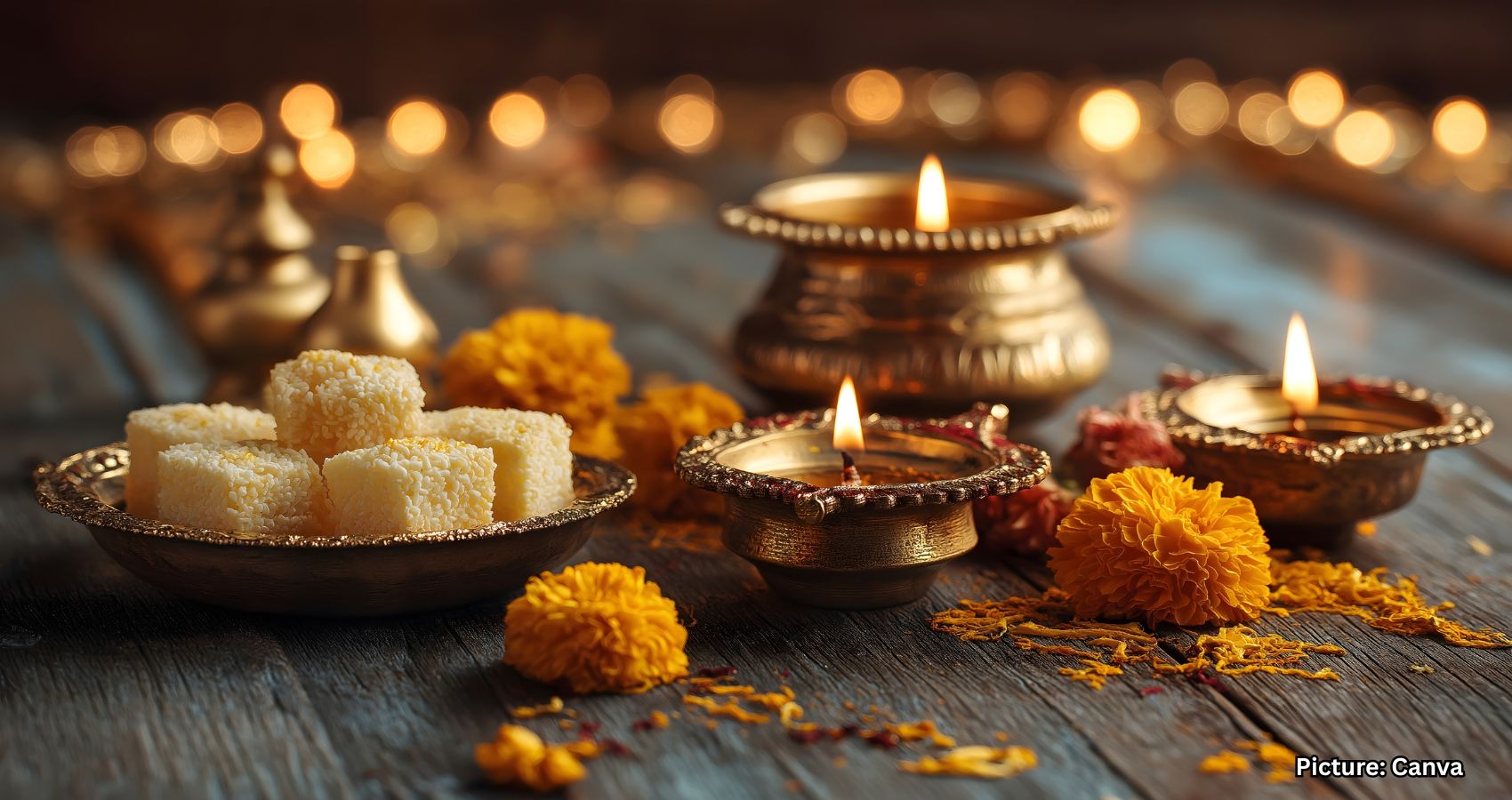Every year, the author reflects on the bittersweet memories of Diwali while shopping for traditional ingredients at an Indian grocery store in Georgia.
Every year before Diwali, I embark on a quiet pilgrimage, not to Tirupathi but to Cherians, the Indian grocery store in Georgia. I tell myself I’m only here for cardamom, for the gulab jamuns I promised to make, but deep down, I know better. I come for the memories, for the bittersweet ache steeped in nostalgia.
As I walk the aisles, I tread carefully, past cumin and turmeric, red Kashmiri chili and coriander seeds, until the tilted, citrus-sweet scent of cardamom envelops me. It is the perfume of my childhood kitchen, where Amma and Avama ruled side by side, much like Elizabeth I and Mary Queen of Scots, their uneasy truce held together by love and a grudging mutual respect. Each festival was a negotiation in flour and fire.
The spice jars glitter under the bright American lights, their labels stamped with distant ports. They have crossed oceans, just as I have, carrying the scent of home in their sealed glass. I can almost see Avama rolling dough for jamuns, her fingers deftly shaping the sweets.
Amma winks at me. “Jamoons should be round, like the moon,” she asserts, with the authority of someone who knows that the name comes from jamun, the Indian blackberry, dark and round. Avama, however, ignores her, continuing to roll. Her jamuns will look nothing like the moon, but their bangles clink like spoons in strawberry Kissan Jam, which leaps off the shelf into my cart as if summoned.
Indian grocery stores are filled with decorations to celebrate Diwali, creating an atmosphere that is both festive and nostalgic.
Then comes the Mysore sandalwood soap, a sharp ambush of scent that transports me back to my childhood. That fragrance is the breath of our bathroom, where shikakai tangled in my hair and muslin towels awaited me. Amma’s voice would trail behind me: “Dry your hair, kanna. Don’t sit on the swing with it wet.” But I always did. I would curl into the beautifully hand-carved walnut wood bench, still dripping, still dreaming, reading Amar Chitra Katha tales of gods and warriors. Meanwhile, Amma coaxed sambrani smoke to rise into my hair like blessings caught mid-air.
The aisle of diyas reminds me that it is Diwali again. What am I doing here, buying too much as usual? Memory travels fast and cruel, across aisles brimming with coriander, mint, eggplants, and ladies’ fingers, past shelves sagging with sweets wrapped in silver and nostalgia—the kind we exchanged at festivals and gave at births.
Yet another tug at my heart: my birth, my special connection to Diwali. I was born to the sound of fireworks and a nation rejoicing. “She is lucky,” they said, the undertone clear, even if she is a girl. “Born on an auspicious day.” Yes, I was spoiled, petted, and pampered, lucky enough to celebrate two birthdays—one by the lunar calendar and one by the Gregorian. But am I still? I wonder.
Now my cart overflows: Mysore sandalwood soaps, Amma’s mango thokku, Osmania biscuits once baked for Nawabs, and Anand Bhavan mixture that Appa loved with his tea. I also have green bananas for old-time-sake bajjis. Not the best for cholesterol, but who cares? It is Diwali. Everything we loved has crossed the seas and now lives on in jars, tins, and cellophane, waiting to be remembered.
As I step into the parking lot, the sky is indifferent. My cart is full, but my heart feels heavier.
Source: Original article

